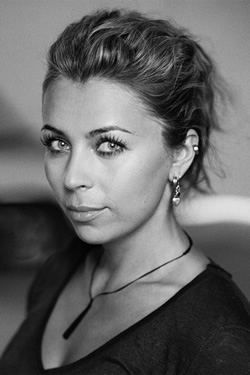
The judging process is carried out by a panel of independent judges. We are proud to announce that the judging panel for Thank You Ireland Photo Competition includes number of extraordinary people, with renowned Agata Stoinska as a chairperson.
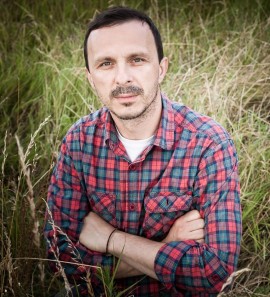 Marek Biegalski is a commercial , portrait and nature / landscapes photographer. Born in Poland in early 70’s, live in Ireland since 2006. He is a self-thought photographer. His work capture sublime moments of light and surrounding, which is result of meticulous planning and preparation. Marek is am artist who seeks out patterns in the landscape and the hidden link between reality and the imagination. Currently living in Dublin where he works on a variety of corporate contracts. Over past eight years have shared his knowledge through a series of photographic workshops. Holds number of awards and his work was published in several known magazines. Marek holds FIAP gold medal and silver PSA award.
Marek Biegalski is a commercial , portrait and nature / landscapes photographer. Born in Poland in early 70’s, live in Ireland since 2006. He is a self-thought photographer. His work capture sublime moments of light and surrounding, which is result of meticulous planning and preparation. Marek is am artist who seeks out patterns in the landscape and the hidden link between reality and the imagination. Currently living in Dublin where he works on a variety of corporate contracts. Over past eight years have shared his knowledge through a series of photographic workshops. Holds number of awards and his work was published in several known magazines. Marek holds FIAP gold medal and silver PSA award.
 Justyna Cwojdzinska is the Artistic Director of Polish Art Festival in Limerick. She graduated from the University of Wroclaw in English Studies. From 2005 till 2010 she was a member of Irish-Polish Culture and Business Association in Limerick. She is strongly involved in supporting of migrants’ rights, promoting of Polish art as well as integration and intercultural exchange. In 2012 she took part in leadership training with School of Leaders.
Justyna Cwojdzinska is the Artistic Director of Polish Art Festival in Limerick. She graduated from the University of Wroclaw in English Studies. From 2005 till 2010 she was a member of Irish-Polish Culture and Business Association in Limerick. She is strongly involved in supporting of migrants’ rights, promoting of Polish art as well as integration and intercultural exchange. In 2012 she took part in leadership training with School of Leaders.
Currently she is working on the 8th Annual Polish Arts Festival (PAF) the theme of which is “Celtic-Slavic Vision of Woman” 11.09 – 05.10.14 (Limerick City Gallery of Arts & The Hunt Museum). Special quest to host the opening of the Festival is Ewa Partum whose solo exhibition can be viewed at Limerick City Gallery of Arts from 17th July 2014.
PAF have managed to secure the support of Limerick City of Culture 2014 with annual exhibition project and the co-running events. This year she is launching Polish Women Network in Limerick and is happy to invite all women to join in the celebration of the Celtic & Slavic Woman during the 8th Annual Polish Arts Festival.
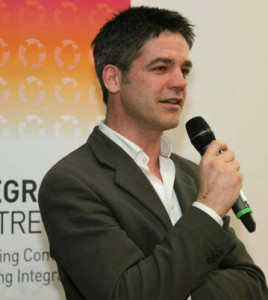 Killian Forde is the Chief Executive Officer of the Integration Centre. He has more than fifteen years experience in the NGO sector both in Ireland and abroad having worked for NGOs and international bodies such as the UN and OSCE. Killian was the Co-ordinator of TravAct, a Traveller advocacy and training organisation from 2002 until his appointment to The Integration Centre. Elected first in 2004, Killian was a Dublin City Councillor for seven years, and the Chairperson of the Finance Committee. In addition Killian is an award winning travel writer. He was educated in Kimmage Manor Developments Studies Centre, the Royal College of Surgeons and DCU where he graduated with an MBA.
Killian Forde is the Chief Executive Officer of the Integration Centre. He has more than fifteen years experience in the NGO sector both in Ireland and abroad having worked for NGOs and international bodies such as the UN and OSCE. Killian was the Co-ordinator of TravAct, a Traveller advocacy and training organisation from 2002 until his appointment to The Integration Centre. Elected first in 2004, Killian was a Dublin City Councillor for seven years, and the Chairperson of the Finance Committee. In addition Killian is an award winning travel writer. He was educated in Kimmage Manor Developments Studies Centre, the Royal College of Surgeons and DCU where he graduated with an MBA.
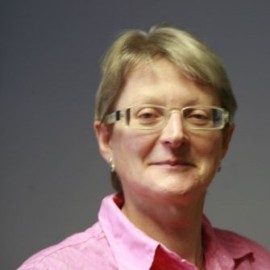 Elizabeth Kirwan is Curator of the National Library of Ireland’s National Photographic Archive (NPA), home to the world’s largest collection of photographs relating to Ireland, some 5.2m photos. The collection dates from the early 1840s to the present, documenting most aspects of Irish experience, in Ireland and overseas. The NPA collection is continuously added to by purchase and increasingly through generous donation.
Elizabeth Kirwan is Curator of the National Library of Ireland’s National Photographic Archive (NPA), home to the world’s largest collection of photographs relating to Ireland, some 5.2m photos. The collection dates from the early 1840s to the present, documenting most aspects of Irish experience, in Ireland and overseas. The NPA collection is continuously added to by purchase and increasingly through generous donation.
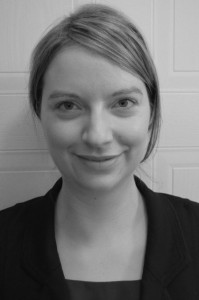 Antje Roeder is Assistant Professor in the Department of Sociology. She holds a BA in European Studies, an MA in Applied Social Research from UL, and a PhD in Sociology from Trinity College. Her main research interests are mobility and migration, with focus on migrants’ integration in European societies. She is currently conducting the Irish Research Council funded ‘New Irish Families’ project, and is involved in the European collaborative project SCIP ‘Causes and Consequences of Early Socio-Cultural Integration Processes among New Immigrants in Europe’. She has a particular interest in quantitative methods in the social sciences and their application in migration research, and teaches research methodology, as well as modules on migration, to both undergraduates and postgraduates on the M.Phil in Race, Ethnicity, Conflict.
Antje Roeder is Assistant Professor in the Department of Sociology. She holds a BA in European Studies, an MA in Applied Social Research from UL, and a PhD in Sociology from Trinity College. Her main research interests are mobility and migration, with focus on migrants’ integration in European societies. She is currently conducting the Irish Research Council funded ‘New Irish Families’ project, and is involved in the European collaborative project SCIP ‘Causes and Consequences of Early Socio-Cultural Integration Processes among New Immigrants in Europe’. She has a particular interest in quantitative methods in the social sciences and their application in migration research, and teaches research methodology, as well as modules on migration, to both undergraduates and postgraduates on the M.Phil in Race, Ethnicity, Conflict.
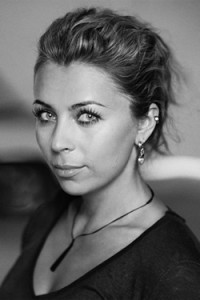 Agata Stoinska is originally from Poland but since 2003 has been living in Ireland. She is a fully qualified architect but her passion has alway been a photography. Her serious involvement in photography began while on an architectural scholarship in the USA and the attendant college ran photography classes. She then continued her studies at the European Academy of Photography in Warsaw. Agata’s first photography work was as a still photographer. Her experience taken from working on film sets taught Agata the importance of precision, the creation of mysterious atmosphere and a close connection with the model which can be still seen in her fashion work today. Equally, the sensation of space and composition lead directly from her architectural background. Agata’s personal work has been exhibited in galleries throughout Ireland, Europe and the United States. In early 2009 she opened D-light Studios – a large multimedia space that would accommodate the photography, fashion, television and arts industries. In 2010 Agata set up BLOW Photo – a creative platform for all things photography. BLOW’s aims to promote national and international photography through inspiring publications, exhibitions, events and talks. Recently BLOW Photo Magazine, the publication of BLOW Photo, has been nominated for the prestigious Lucie Awards 2013 which honours the most outstanding photography achievements from publications around the Globe, alongside such names as Aperture and the British Journal of Photography. Agata is the winner of the annual Dublin City Female Entrepreneur Awards. In 2009 she won the ‘Rising Star’ Award 2009 and she was the winner of the Most Improved Business Award 2010.
Agata Stoinska is originally from Poland but since 2003 has been living in Ireland. She is a fully qualified architect but her passion has alway been a photography. Her serious involvement in photography began while on an architectural scholarship in the USA and the attendant college ran photography classes. She then continued her studies at the European Academy of Photography in Warsaw. Agata’s first photography work was as a still photographer. Her experience taken from working on film sets taught Agata the importance of precision, the creation of mysterious atmosphere and a close connection with the model which can be still seen in her fashion work today. Equally, the sensation of space and composition lead directly from her architectural background. Agata’s personal work has been exhibited in galleries throughout Ireland, Europe and the United States. In early 2009 she opened D-light Studios – a large multimedia space that would accommodate the photography, fashion, television and arts industries. In 2010 Agata set up BLOW Photo – a creative platform for all things photography. BLOW’s aims to promote national and international photography through inspiring publications, exhibitions, events and talks. Recently BLOW Photo Magazine, the publication of BLOW Photo, has been nominated for the prestigious Lucie Awards 2013 which honours the most outstanding photography achievements from publications around the Globe, alongside such names as Aperture and the British Journal of Photography. Agata is the winner of the annual Dublin City Female Entrepreneur Awards. In 2009 she won the ‘Rising Star’ Award 2009 and she was the winner of the Most Improved Business Award 2010.
25 years of democratic Poland – a talk with discussion. Special guest – Dr Jacqueline Hayden. Irish Polish Society invites to Polish House on Sunday, 8th June, 5pm. There will be a talk with discussion. They expect to hear about Dr Hayden’s unique remarkable experience in the Poland of 1980.The evening will be in an informal atmosphere, admission is free and light refreshments will be served. (more…)
6 European Parliament and 7 local election candidates will field questions around integration, diversity and migration at the ‘New Communities in the Elections’ event 28th April ‘14, at 6pm in the Gresham Hotel in Dublin. (more…)

Political Parties ignoring immigrants because they think they are unlikely to vote in local elections
Report: Inclusive Politics for a Diverse Republic
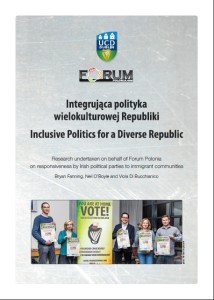 The perception among political parties that immigrants are unlikely to vote in the upcoming local government elections has undermined commitments to integration within political parties, according to a new report.
The perception among political parties that immigrants are unlikely to vote in the upcoming local government elections has undermined commitments to integration within political parties, according to a new report.
In the last local government elections (2009) more than 40 immigrant candidates stood for election. About half represented political parties. About half were African in origin and about half were from Eastern Europe with most of these being Polish.
At the time, within a number of political parties there seemed to be a rising enthusiasm for integrating migrants into the political system.
Today, in the run up to the local government elections on 23 May 2014, some political parties seem to be making less of an effort to integrate the immigrant community.
“Very few immigrant candidates have been selected by Irish political parties for the upcoming local government elections,” said Professor Brian Fanning, UCD School of Applied Social Science who co-authored the report, Inclusive Politics for a Diverse Society.
“Efforts to engage with immigrant communities appears to have declined. Debate about integration has dropped off the political radar and from the programmes of political parties.”
The new report highlights that there is no longer a Minister of State for Integration. It claims that Ireland’s large immigrant communities – who comprise one in eight of the population – are all but invisible within the political system.
This especially holds for the Polish community that, a decade after EU Enlargement, has become Ireland’s largest immigrant community and linguistic minority. According to the 2011 census Poles now make up more than two and half percent of the population of the Republic of Ireland.
“The likely outcome of the 2014 local government elections is that only a small number of immigrants will be elected as councillors. Immigrant political representation in the Dail seems a long way off,” added Professor Fanning.
“It is crucial that immigrants turn out to vote in order to challenge the prevailing perception within a number of political parties that they can be ignored.”
Barnaba Dorda of Forum Polonia, the immigrant-led organisation that commissioned the research said: “There are considerable challenges in engaging the Polish community in the political process and the likely long term marginalisation of Ireland’s largest immigrant community from the political system is a matter of grave concern. Beyond encouraging immigrants to vote it is crucial that mechanisms are put in place to ensure that local government is responsive to Ireland’s diverse communities.”
Agnieszka Wieczorkowska, an Independent candidate standing for Dublin City Council, said: “In my opinion, diversity is a value and it is absolutely necessary to build an open and modern community. I would like to see more women and migrants involved in Irish political life. It is our civic duty to participate in the electoral process and people should be aware of their voting rights. We should and we need to participate in the decision making process that affects our local community. As a councillor I want to represent all citizens of our area. I would like to respond to our local needs and concerns, improve the general development in our area and make our local community a better place to live in.”
Rafal Kornatka (also standing as an independent candidate for Dublin City Council) said: ‘I want to work to create a better life for my local community. My aim is also to build a positive image of the Polish community in Ireland. I believe that as a councillor I will have a real impact on the life of my community and the city as well. I want to utilize my skills and experience to provide help and assistance on individual and community issues’.
The conference entitled GO to VOTE – Mobilising the Migrant Community to Vote will be held at the European Parliament Dublin, 43 Molesworth Street, Dublin 2, on Saturday 15th March from 10:00 am to 3.00pm.
The Objective of the seminar is to facilitate and develop strategies with Migrant community representatives in order to ensure that they mobilise the migrant community to come out and vote on Election Day.
Four Migrant led organisations, AkiDwA, Africa Centre, Forum Polonia and New Community Partnership will hold a seminar to develop strategies for mobilising the migrant population to vote. The four organisations also express their concerns on the need to have support in place for immigrant’s men and women that have declared intension of running for local election, to ensure they get elected.
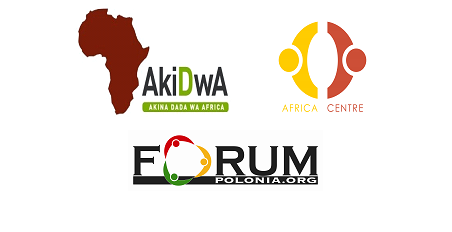 The seminar is a follow up to a conference that was held by the organisations in October last year on Democratic Participation of Immigrants in Ireland. Participants at this conference acknowledged the importance of involving immigrants into political and civic life in Ireland as the 2011 census clearly indicated that 12% of the Irish population are immigrants. Many immigrants are involved in religious and community organisations but have yet to see their involvement represented in the political realm in Ireland.
The seminar is a follow up to a conference that was held by the organisations in October last year on Democratic Participation of Immigrants in Ireland. Participants at this conference acknowledged the importance of involving immigrants into political and civic life in Ireland as the 2011 census clearly indicated that 12% of the Irish population are immigrants. Many immigrants are involved in religious and community organisations but have yet to see their involvement represented in the political realm in Ireland.
Date: 15th of March
Time: 10:00am – 3.00pm
Venue: 43 Molesworth Street, Dublin 2
Please RSVP to info@akidwa.ie or call Egide Dhala at 01-8349851
Project and event Supported By Dublin City Council and European Parliament Office in Dublin.

 Marek Biegalski is a commercial , portrait and nature / landscapes photographer. Born in Poland in early 70’s, live in Ireland since 2006. He is a self-thought photographer. His work capture sublime moments of light and surrounding, which is result of meticulous planning and preparation. Marek is am artist who seeks out patterns in the landscape and the hidden link between reality and the imagination. Currently living in Dublin where he works on a variety of corporate contracts. Over past eight years have shared his knowledge through a series of photographic workshops. Holds number of awards and his work was published in several known magazines. Marek holds FIAP gold medal and silver PSA award.
Marek Biegalski is a commercial , portrait and nature / landscapes photographer. Born in Poland in early 70’s, live in Ireland since 2006. He is a self-thought photographer. His work capture sublime moments of light and surrounding, which is result of meticulous planning and preparation. Marek is am artist who seeks out patterns in the landscape and the hidden link between reality and the imagination. Currently living in Dublin where he works on a variety of corporate contracts. Over past eight years have shared his knowledge through a series of photographic workshops. Holds number of awards and his work was published in several known magazines. Marek holds FIAP gold medal and silver PSA award. Justyna Cwojdzinska is the Artistic Director of Polish Art Festival in Limerick. She graduated from the University of Wroclaw in English Studies. From 2005 till 2010 she was a member of Irish-Polish Culture and Business Association in Limerick. She is strongly involved in supporting of migrants’ rights, promoting of Polish art as well as integration and intercultural exchange. In 2012 she took part in leadership training with School of Leaders.
Justyna Cwojdzinska is the Artistic Director of Polish Art Festival in Limerick. She graduated from the University of Wroclaw in English Studies. From 2005 till 2010 she was a member of Irish-Polish Culture and Business Association in Limerick. She is strongly involved in supporting of migrants’ rights, promoting of Polish art as well as integration and intercultural exchange. In 2012 she took part in leadership training with School of Leaders. Killian Forde is the Chief Executive Officer of the Integration Centre. He has more than fifteen years experience in the NGO sector both in Ireland and abroad having worked for NGOs and international bodies such as the UN and OSCE. Killian was the Co-ordinator of TravAct, a Traveller advocacy and training organisation from 2002 until his appointment to The Integration Centre. Elected first in 2004, Killian was a Dublin City Councillor for seven years, and the Chairperson of the Finance Committee. In addition Killian is an award winning travel writer. He was educated in Kimmage Manor Developments Studies Centre, the Royal College of Surgeons and DCU where he graduated with an MBA.
Killian Forde is the Chief Executive Officer of the Integration Centre. He has more than fifteen years experience in the NGO sector both in Ireland and abroad having worked for NGOs and international bodies such as the UN and OSCE. Killian was the Co-ordinator of TravAct, a Traveller advocacy and training organisation from 2002 until his appointment to The Integration Centre. Elected first in 2004, Killian was a Dublin City Councillor for seven years, and the Chairperson of the Finance Committee. In addition Killian is an award winning travel writer. He was educated in Kimmage Manor Developments Studies Centre, the Royal College of Surgeons and DCU where he graduated with an MBA. Elizabeth Kirwan is Curator of the National Library of Ireland’s National Photographic Archive (NPA), home to the world’s largest collection of photographs relating to Ireland, some 5.2m photos. The collection dates from the early 1840s to the present, documenting most aspects of Irish experience, in Ireland and overseas. The NPA collection is continuously added to by purchase and increasingly through generous donation.
Elizabeth Kirwan is Curator of the National Library of Ireland’s National Photographic Archive (NPA), home to the world’s largest collection of photographs relating to Ireland, some 5.2m photos. The collection dates from the early 1840s to the present, documenting most aspects of Irish experience, in Ireland and overseas. The NPA collection is continuously added to by purchase and increasingly through generous donation. Antje Roeder is Assistant Professor in the Department of Sociology. She holds a BA in European Studies, an MA in Applied Social Research from UL, and a PhD in Sociology from Trinity College. Her main research interests are mobility and migration, with focus on migrants’ integration in European societies. She is currently conducting the Irish Research Council funded ‘New Irish Families’ project, and is involved in the European collaborative project SCIP ‘Causes and Consequences of Early Socio-Cultural Integration Processes among New Immigrants in Europe’. She has a particular interest in quantitative methods in the social sciences and their application in migration research, and teaches research methodology, as well as modules on migration, to both undergraduates and postgraduates on the M.Phil in Race, Ethnicity, Conflict.
Antje Roeder is Assistant Professor in the Department of Sociology. She holds a BA in European Studies, an MA in Applied Social Research from UL, and a PhD in Sociology from Trinity College. Her main research interests are mobility and migration, with focus on migrants’ integration in European societies. She is currently conducting the Irish Research Council funded ‘New Irish Families’ project, and is involved in the European collaborative project SCIP ‘Causes and Consequences of Early Socio-Cultural Integration Processes among New Immigrants in Europe’. She has a particular interest in quantitative methods in the social sciences and their application in migration research, and teaches research methodology, as well as modules on migration, to both undergraduates and postgraduates on the M.Phil in Race, Ethnicity, Conflict. Agata Stoinska is originally from Poland but since 2003 has been living in Ireland. She is a fully qualified architect but her passion has alway been a photography. Her serious involvement in photography began while on an architectural scholarship in the USA and the attendant college ran photography classes. She then continued her studies at the European Academy of Photography in Warsaw. Agata’s first photography work was as a still photographer. Her experience taken from working on film sets taught Agata the importance of precision, the creation of mysterious atmosphere and a close connection with the model which can be still seen in her fashion work today. Equally, the sensation of space and composition lead directly from her architectural background. Agata’s personal work has been exhibited in galleries throughout Ireland, Europe and the United States. In early 2009 she opened D-light Studios – a large multimedia space that would accommodate the photography, fashion, television and arts industries. In 2010 Agata set up BLOW Photo – a creative platform for all things photography. BLOW’s aims to promote national and international photography through inspiring publications, exhibitions, events and talks. Recently BLOW Photo Magazine, the publication of BLOW Photo, has been nominated for the prestigious Lucie Awards 2013 which honours the most outstanding photography achievements from publications around the Globe, alongside such names as Aperture and the British Journal of Photography. Agata is the winner of the annual Dublin City Female Entrepreneur Awards. In 2009 she won the ‘Rising Star’ Award 2009 and she was the winner of the Most Improved Business Award 2010.
Agata Stoinska is originally from Poland but since 2003 has been living in Ireland. She is a fully qualified architect but her passion has alway been a photography. Her serious involvement in photography began while on an architectural scholarship in the USA and the attendant college ran photography classes. She then continued her studies at the European Academy of Photography in Warsaw. Agata’s first photography work was as a still photographer. Her experience taken from working on film sets taught Agata the importance of precision, the creation of mysterious atmosphere and a close connection with the model which can be still seen in her fashion work today. Equally, the sensation of space and composition lead directly from her architectural background. Agata’s personal work has been exhibited in galleries throughout Ireland, Europe and the United States. In early 2009 she opened D-light Studios – a large multimedia space that would accommodate the photography, fashion, television and arts industries. In 2010 Agata set up BLOW Photo – a creative platform for all things photography. BLOW’s aims to promote national and international photography through inspiring publications, exhibitions, events and talks. Recently BLOW Photo Magazine, the publication of BLOW Photo, has been nominated for the prestigious Lucie Awards 2013 which honours the most outstanding photography achievements from publications around the Globe, alongside such names as Aperture and the British Journal of Photography. Agata is the winner of the annual Dublin City Female Entrepreneur Awards. In 2009 she won the ‘Rising Star’ Award 2009 and she was the winner of the Most Improved Business Award 2010.


